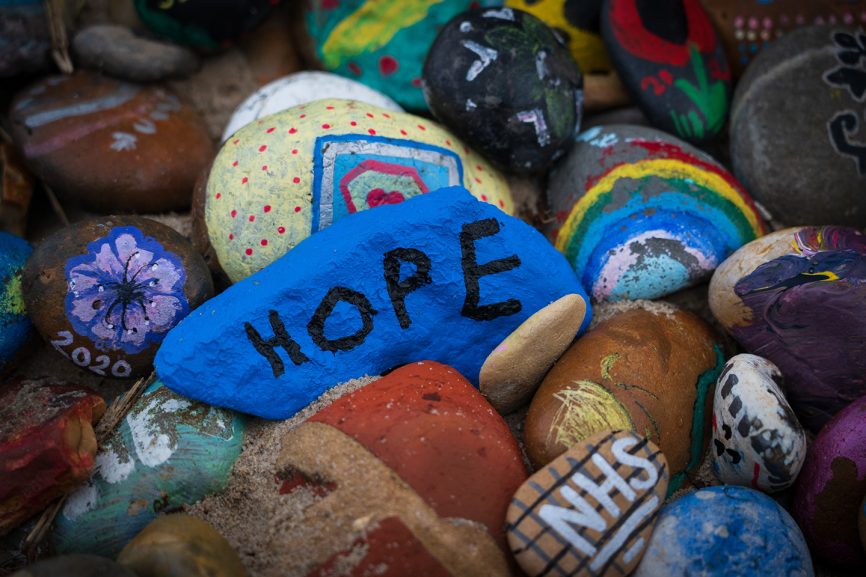By Rev. Dr. Anna Hall
We see it all around us: people are increasingly disconnected from the civic institutions, including churches, that fostered relationships and belonging in decades past.
One new study, Civic Virus: Why Polarization Is a Misdiagnosis, prepared by The Harwood Institute for Public Innovation in partnership with the Kettering Foundation, explores just this disconnection and diagnoses a “civic virus.” This research found that in the US today,
“People are experiencing a profound sense of loss of reality and control, leaving them dizzied, disoriented, and feeling helpless… everyone seems to be struggling nowadays. This thread runs throughout all that we learned from talking in-depth with Americans from many walks of life. People are in a desperate search for an antidote to these prevailing social and psychological conditions. At the heart of what people seek is acceptance and belonging. Though feelings of intense isolation undoubtedly surged during COVID-19 times, this search didn’t just begin as a result of the pandemic.”
We can see symptoms of this virus everywhere we look. We see more heated fight-or-flight responses to minor disagreements, attractions to charismatic leaders promising easy answers or top-down control, and interest in conspiracy theories that supply a feeling of belonging to a group that is “in the know” about a grounded theory that explains everything.
If a lack of connection and belonging is the dis-ease, healthy congregations that offer true belonging and acceptance are sorely needed in our world today. Some of the study respondents reported having to toe a line of belief they may not fully embrace to find belonging. Progressive congregations that focus on belonging and not rigid belief assent could provide a safe place for them to land. While attending worship may not be on their radar, congregations that provide opportunities to plug into community service or spiritual practice without high entry barriers can serve as a place of connection and grounding through the rapid societal and life changes we all experience.

The report also suggests that “more doable and achievable actions will need to be taken to restore people’s belief that we can get things done together, rather than offering more false hope about change.” Local community action was seen by many as a source of hope during the pandemic, but also a source of concern that even these connections would soon unravel. A healthy congregation that makes a real local impact through ongoing collective efforts can be a demonstration plot for real rather than false hope in our collective possibilities.
We also have to consider if people in need of such a place can find us. Our fear of evangelism can often mean that we are not meeting the very urgent needs of our neighbors. We may be excellent at collecting canned foods for those experiencing food insecurity but terrible at letting people know: You can find belonging and hope here! This may require rethinking how people find out about what you offer, highlighting more “front doors” to belonging than worship, and intentionally incorporating new people into groups to feel that sense of belonging.
However, congregational life is not immune to the symptoms mentioned above. While God and faith were some of the few things the study found that people trust, that does not erase the sense of disorientation in other areas of their lives. While faith may be strong in our congregations, we can see evidence of this feeling of helplessness and disorientation in declining engagement and unhealthy conflict skills. People who are feeling unmoored are less able to bring whole and healthy selves to the collective work of a congregation. Disorientation can also mean that any congregational change (inevitable in a time of shifting pandemic conditions) will feel unbearable to those who long for just one thing in their life to stay the same. They can project all of their grief over so much recent loss onto a single change in worship or programming in the local church. Congregations can also be a source of pain for people if polarization and conflict divide or foster bad behavior between members. One journalist interviewed for this research had to leave his church due to hate mail from other members about the articles he wrote. You may have work to do to be healthy enough to provide belonging and hope as a congregation.
Healing this civic dis-ease calls for a particular type of leadership. The report suggests that “a new breed of leader is needed, one who exhibits the courage and humility to step forward in these turbulent times.” They outline the characteristics of such a leader:
- bringing people together across dividing lines
- listening deeply to all voices in a community and knowing what really matters to people
- developing actions that address people’s real concerns,
- and living up to pledges and promises made…
Congregations can develop paid and lay leaders that exhibit these characteristics and skills. What would it look like if your congregation committed to building up such courageous and humble leaders?
You may also need to build up skills for healthy dialogue across differences and healthy approaches to conflict in all of your participants. Training on transforming conflict and behavioral covenants can help congregations be a place where people feel cared for even in the midst of disagreements or external polarization.
In their conclusions, Kettering proposes that
“we have a choice in how we respond to the civic virus. We can either throw up our hands in frustration at the current conditions, or we can step forward to create a positive contagion of authentic hope.”
Quite honestly, this seems like the work that congregations are meant to do if they can find the health and drive to get there. Is your congregation a place of authentic hope? Of connection and belonging? What would it take for you to get there from where you are today?
As you think about your congregation’s calling in the days and months ahead, I hope you will begin exploring how your congregation can be a site of belonging and hope. Once you take the steps toward providing true belonging and hope to others, I also hope that you will spread the word far and wide about how people can find you and connect.
Your neighbors are struggling. They need you. How will you be a place of healing this “civic virus” in the days to come?
* Harwood, Richard C. Civic Virus: Why Polarization Is a Misdiagnosis. Prepared by The Harwood Institute for Public Innovation in partnership with the Kettering Foundation. Accessed at https://www.kettering.org/sites/default/files/product-downloads/civic_virus_report.pdf


